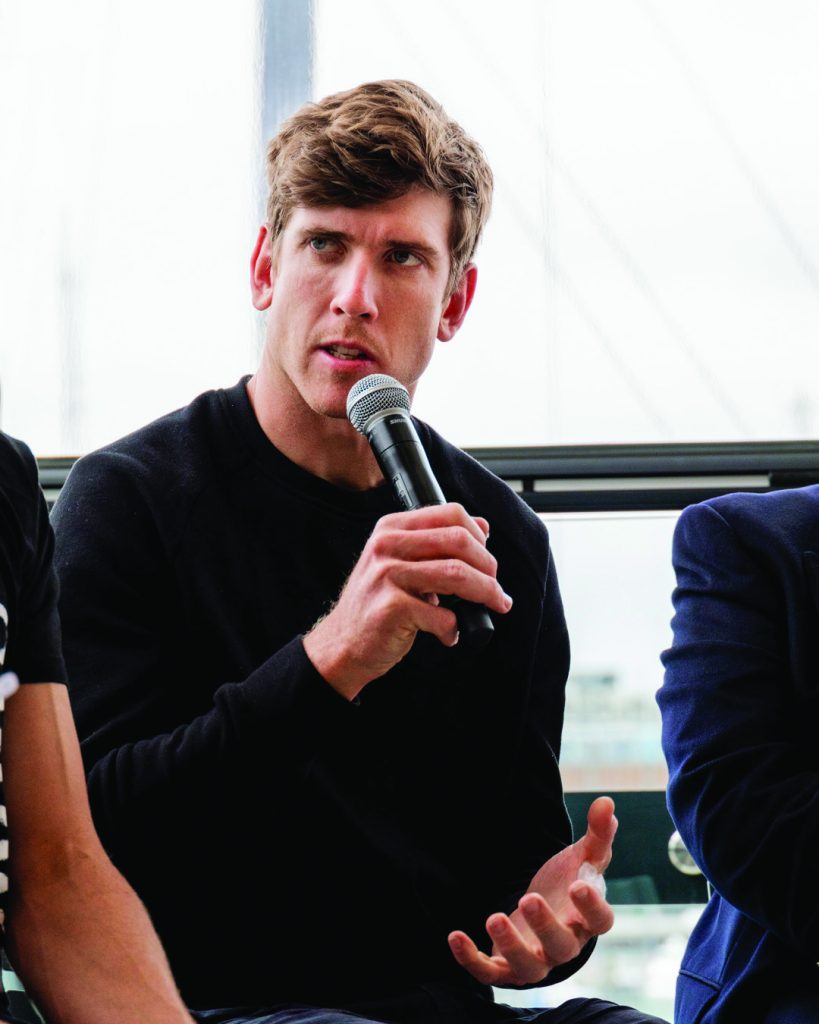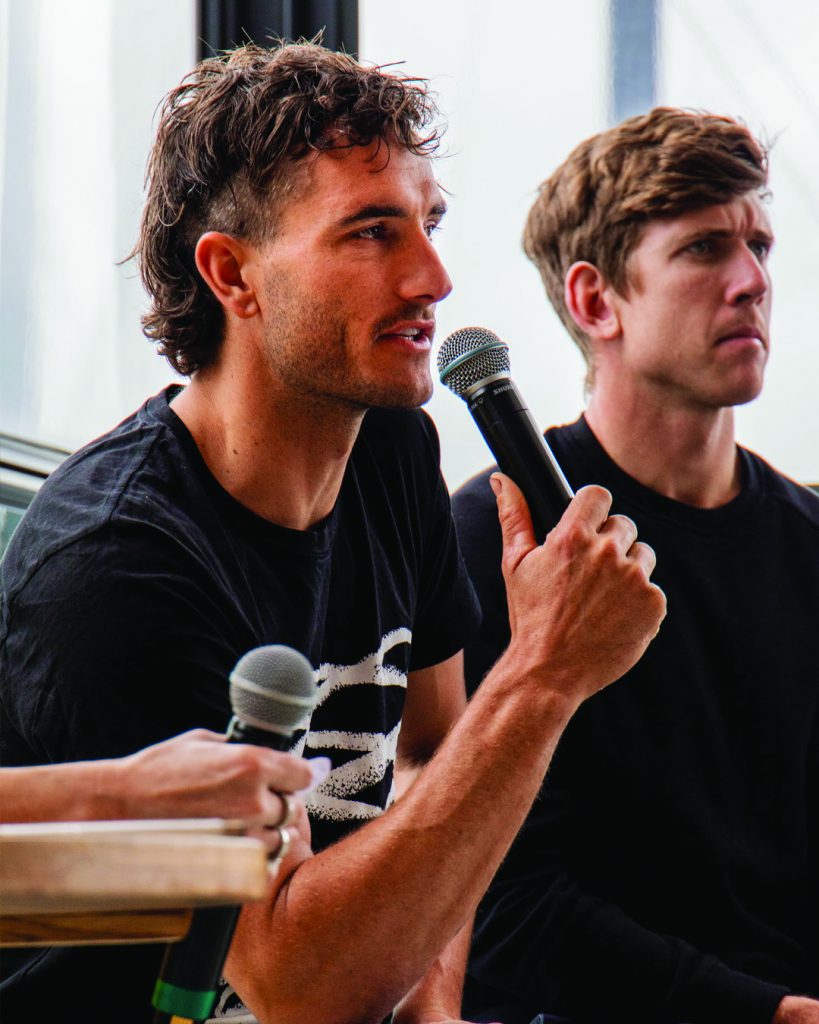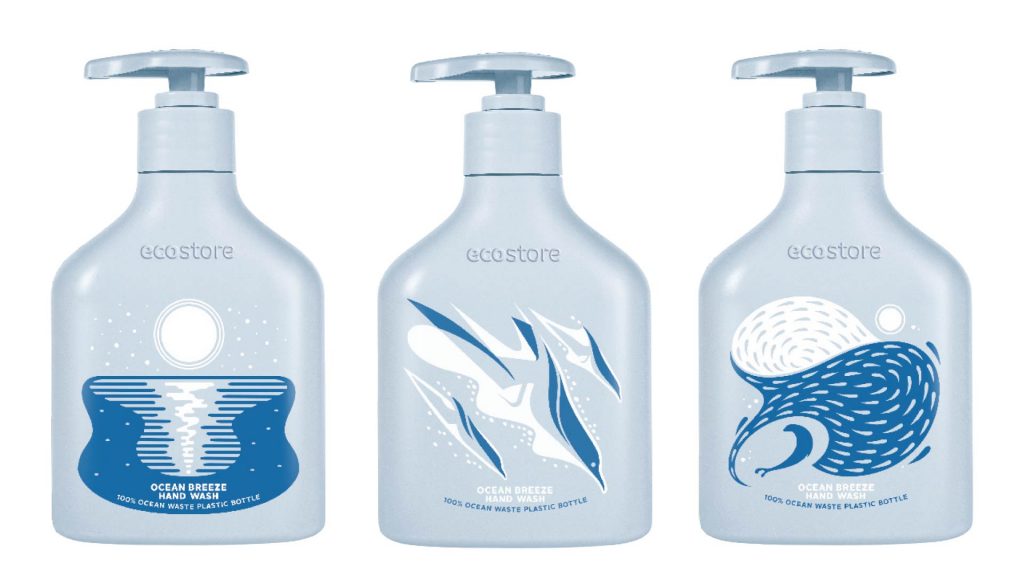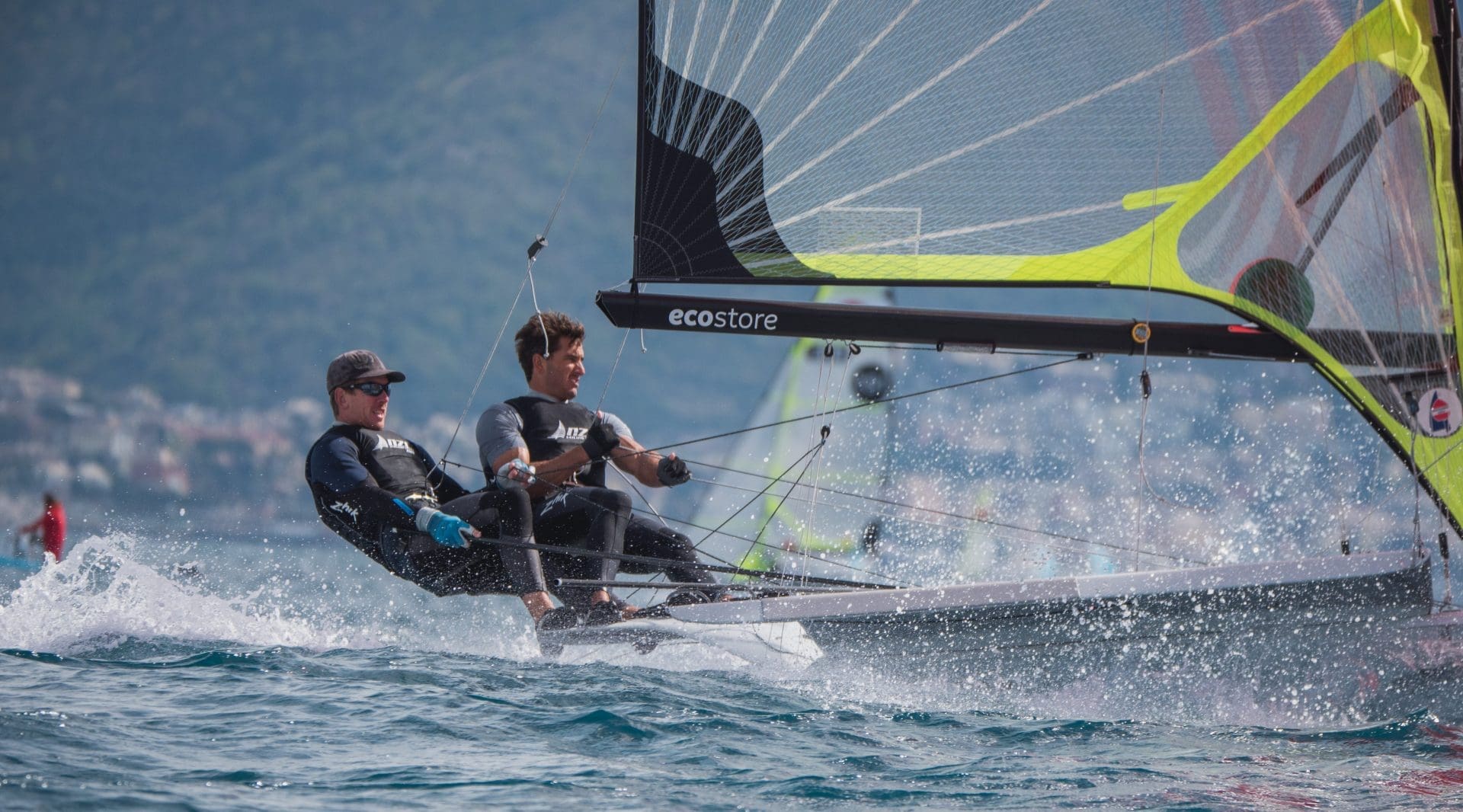A Wave Of Change
You’d have to have been living under a pile of accumulated waste plastic to have missed the rising awareness of climate change and environmental impact. Greta Thunburg sailed 7000km to give the UN a hard time about not doing enough for climate change, kickstarted protests around the world and then round off 2019 as TIME’s person of the year. Greta might now be a powerful voice on the world stage, but there are also plenty of people making a difference here in New Zealand.
And while some big businesses might be in the firing lines of climate activists, there are a growing number of enterprises that make a positive change. While ecostore, now led by CEO Pablo Kraus, has been sustainably focused since before it was ever a term, they have increased their focus on ocean health, which is a big consideration in this part of the world. Every year eight million tonnes of plastic enters the world’s oceans, according to a World Economic Forum report. That is equivalent to one garbage truck of plastic dumped into the ocean every minute, and that rate is set to triple over the next decade unless prompt action is taken. The report predicts that plastic will outnumber fish by weight in the oceans by 2050 if nothing is done to prevent new plastic pollution and clean up our oceans.
To help combat this, ecostore has teamed up with sustainable packaging innovator Pack Tech to create 20,000 hand wash bottles made from ocean waste plastic. This essentially removes half a tonne of ocean waste plastic from the Java Sea in Bali and a river in Jakarta in Indonesia. Ecostore also uses sugarcane plastics in their other products, but by showcasing the use of ocean waste as an option, it starts to create real commercial viability behind the clean-up. Ecostore are also collaborating with New Zealand-waterways based, not-for-profit Sea Cleaners, in a bid to help tackle one of the world’s biggest environmental challenges of our lifetime – plastic pollution littering our oceans. Sea Cleaners has removed over 8.5 million litres of rubbish from the Auckland harbour and sea since 2002 – that is enough rubbish to fill approximately 283 shipping containers.

A key part of this collaboration are Olympic gold medal winners and ecostore ambassadors, Peter Burling and Blair Tuke who are helping raise awareness of the ocean waste issue.
Why have you partnered with ecostore to combat ocean plastic pollution?
Blair Tuke: We need to look after our ocean, that’s part of our DNA as New Zealanders. Marine plastic pollution is a massive issue and the reality is, most of it is unseen. We’re proud to be supporting ecostore’s campaign that shines a light on what more Kiwi companies and consumers can do to reduce the amount of plastic that ends up in the ocean.
How did the relationship come about and what will be your continuing role in it?
BT: Our relationship with ecostore is built on shared values of looking after our ocean for future generations. Our partnership demonstrates our support of ecostore’s sustainability initiatives, such as the limited edition bottle and refill stations.
With years spent on the ocean can you talk through some of the changes that you have noticed over the years?
Peter Burling: It’s been sad to witness the ocean’s deterioration over the years. It really hit home to me how serious it was on my first round the world ocean race, and the remote parts of the world that were affected. We’ve definitely sailed in parts of the world where you don’t want to be in the water and you have to be careful not to swallow it. It’s so important we look after our New Zealand ocean space. We need to put a higher value on it.
Why should people who don’t live in coastal regions care?
Pablo Kraus: The health of our oceans has a direct impact on the carbon cycle and therefore the earth’s climate. According to the Ocean Conservancy Report, 80 percent of plastic in our oceans comes from land-based sources. So no matter where we live, we each need to play our part – by choosing less packaging, refilling where possible and recycling or disposing of our waste thoughtfully.
What sort of difference will removing half a tonne of ocean waste make to the current situation?
PK: We understand that far more plastic enters our oceans each year than ecostore alone can remove and remake into bottles. However, our aim with this Limited Edition range is to raise awareness of the ocean plastic problem, and set an example for other businesses. We wanted to prove it’s possible to use ocean waste plastic in a supermarket product. But we also know it’s not the only answer to plastic pollution. That’s why we offer refill options, take back schemes for our oral care products and use recycled plastic in our regular sugar plastic bottles. One huge environmental advantage of sugar plastic is it removes carbon from the atmosphere, assisting global warming.

Something like this sets a wonderful example for other brands to do something similar. What could be possible if companies worked together on this issue?
Jason Hodson, Pack Tech: The ecostore product sets an absolute precedent in what can be achieved in a very short amount of time with minimal disruption to the operation of any large company that deals in the supply of plastic goods.
There is nothing to stop any company switching to using ocean waste plastic.
Yes, there is an added cost to the process. But the cost to the environment, if people do not support such a move, cannot be measured in monetary terms.
There is approximately 8-12 million tonnes of plastic making its way into the ocean every year and we can account for close to 200 million tonnes in the ocean as we speak. Yet worldwide, humans consume close to 300 million tonnes of plastic annually.
We, as a species, are on a precipice. We could effectively clean the world’s oceans in the next decade or kill them. The only thing that is going to determine which outcome it is, will be if people and companies choose to use ocean waste plastic, or not.

How can individuals support the removal of ocean plastic?
PK: People can purchase products that use recycled plastic or ocean waste plastic. They can also support local initiatives to clean up waterways, organisations like Sustainable Coastlines, Sea Cleaners, Keep New Zealand Beautiful, etc, are all doing great work. Even just picking up a piece of rubbish or three when you see it lying around, and being mindful of placing it in the right bin.
Sustainable business is becoming more and more important. What has been the catalyst for this?
PK: Ecostore has been around for over 25 years now and it was founded on a purpose. Everything that we do comes from us asking, ‘Is this better for the planet?’
What you’re seeing now is people trying to put a sticker onto something that they’ve been doing for years. They’re trying to retrofit purpose back into their company, which you can’t do. Companies shouldn’t be trying to retrofit back into their history if it doesn’t fit.
The best thing you can do is actually put a line in the sand going forward, because authenticity is the most important thing. People want to respect what your company’s doing. They can see right through greenwashing. That’s why if you want to have a company with purpose, be upfront, admit there is a better way you can do it from now on.

